
“Why aren’t we allowed to talk in ceremony?” Alexandra had asked me at some point. I explained what I knew about it distracting others, and more importantly it being a distraction from looking into oneself. Alex was determined to get to the bottom of her pain and anxiety, and was sure it was going to be at the bottom of a cup of Ayahuasca – with or without anyone else around to make sure she was OK.
Alex had asked if I would sit with her and there was no talking her out of drinking the tea now that she had it in her possession. At the time, I had assisted as a server in a number of ceremonies, helping to care for people who were having a hard time. Given the choice of allowing her to drink by herself, having had little experience, I chose to join her.
When being in a role of service, the custom is to drink in order to have a heightened sense of how others are going. A person who is serving doesn’t have a strong intention to do self-healing work, instead they remain present in the ceremony space, ready to respond if needed. Not drinking would be a bit like being one of the life guards at a pool full of people training in scuba diving, but remaining out of the water on the tower instead of in the pool with a scuba tank.
Drinking while caring for others has great benefits, though it’s not without its challenges. Let’s just say that the people selected to act as servers or carers need to have a high level of self awareness and control while the Ayahuasca is in effect in order to be useful to others.
So we drank… and I was about to learn an important lesson in personal ego control.
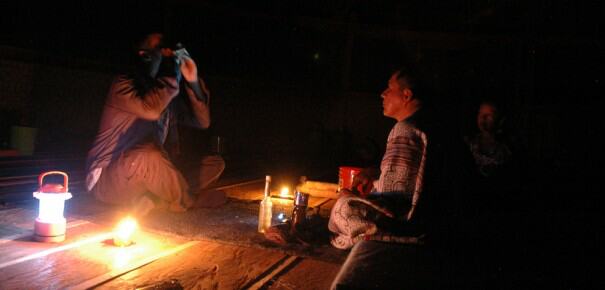
Without the usual limitations of having to be considerate of all the other participants, Alex wanted to talk. She kept asking me questions. Questions I had reasonably good answers to. Ego loves to have all the answers and loves to feel important, so no matter how hard I tried to gently encourage Alex not to be distracted, on many occasions I didn’t have the discipline to stop myself from answering.
Soon I began to observe how important it made my ego feel to be placed into the role of mentor… and Alex’s ego knew it. Whether Alex was aware or not, her ego had recognised the weakness in me and was using it to manipulate me into continuing to engage in conversation and keep things at a surface level, far away from whatever it was that she needed to look inside herself and face. People do all kinds of things in life and in ceremony to avoid facing the uncomfortable and painful things within themselves, including talking.
To me the difference between religion and shamanism is that religion is belief, ritual and practice based on a mystical experience that someone else had thousands of years ago, and shamanism is beliefs and practices based primarily on the personal mystical experiences of each individual.
In order to do this one must take personal responsibility and seek to have their own experiences of healing, learning and growth. And though it was counterproductive I tried to share this fact with Alex and that asking others for their opinions on things is the exact opposite of looking inwards and finding the answers for yourself.
I felt it was a process of learning to dodge becoming entangled in the thought threads of another. It’s hard enough to do this when there is no speaking. At times I was unsuccessful, tricked and pulled into the endless loops of mind chatter but ultimately the lesson was learned, and I have been particularly wary of the entanglement that can occur between people due to talking in ceremony ever since. Most importantly, speaking during ceremony brings the majority of awareness into our head, away from our heart. That night I learned there is very real power in sacred silence, and I stopped allowing myself to be pulled into the tangled mess of conversation.
In the long term, it taught me lessons in the importance of the structure of ceremony. It made me think of sitting around at parties, gorging on deeply fascinating conversation while tripping on acid. Did anything truly deep ever come from this? Compared to ceremony, this kind of activity (that I had long let go of anyway) now felt like the equivalent of mutual mental masturbation.
Is it possible to use language in a way that is positive and constructive during ceremony? There are a number of short phrases that I have carefully selected and commited to memory over time that I have come to feel are acceptable. The point is that they are carefully considered and pre-approved as suitable, then tested before being accepted for broad used. This isn’t conversation, this is distilling language and using it powerfully, not unlike the way people write songs for ceremony. They take care to make sure the content is going to guide people to a good place and the material is screened for anything that might have unintended consequences.
Some of the phrases that I’m ok with saying at the appropriate time are as follows:
– Come back to your breath.
– Observe, accept, allow.
– Breathe into your heart.
– The key to the heart is release.
– ‘If I’m experiencing pain, I’m experiencing it leaving me.’
– Align your spine.
– The time for sharing is tomorrow. Now is the time for experiencing.
– Remember your intention.
You’ll see that many of these are designed to guide people back into doing their internal work. They are not employed randomly but gently spoken, very often whispered to the right individual at the right time. If conversation is necessary, it is done with consideration so as to not distract others as much as possible. There is always an awareness of remembering to encourage the person to return to doing their internal work as soon as possible, and not being pulled into unnecessary chatter, while at the same time making sure the person feels heard and supported. Deep thanks to Alex for helping my understand the depths of this.
If you ever care to read the manual for MDMA assisted PTSD therapy, you’ll find that the in that instance the practitioner doesn’t ingest any MDMA and the talk therapy is intermittent between extended periods of inward focus. They work with roughly half of the total time dedicated to psychotherapy, i.e. talking, and half is a meditation guided by music. They too are careful to guide people back to silence and looking inwards if they feel the participant is using talking to avoid facing an uncomfortable aspect of self.
Overall, entheogenic medicines are about the person having their own experience with something mystical, whether you want to call it the subconscious, multidimensional reality or the spirit world. Coming back to the scuba analogy (with slight adjustment), if ceremony is akin to diving in the ocean, conversation pulls us back up to surface level.
What kind of a heroes journey is it where the hero leaves their ordinary world into the heightened world of adventure but keeps going back to the ordinary world instead of journeying deeper into new territory? How can we hope to return with the elixir of new wisdom to improve our lives if we keep running home every time we encounter a challenge.
– All the answers can be found in silence and stillness.
– Less talk, more feel.
–
Jonathan Davis is the Associate Producer on Aya Awakenings. He is a writer and filmmaker with a strong personal interest in the safe and responsible use of plant medicines and entheogens for healing and personal evolution.
–

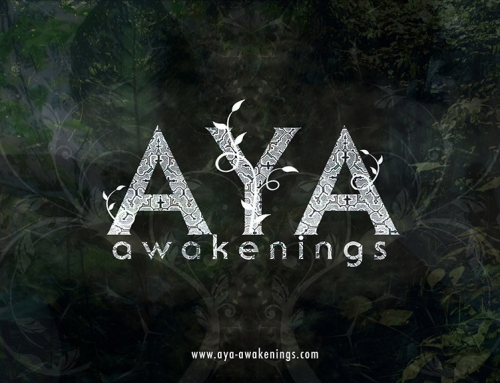
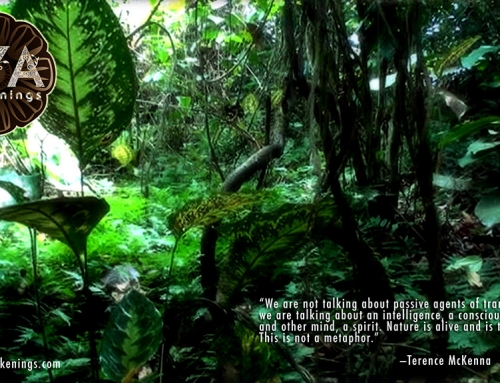
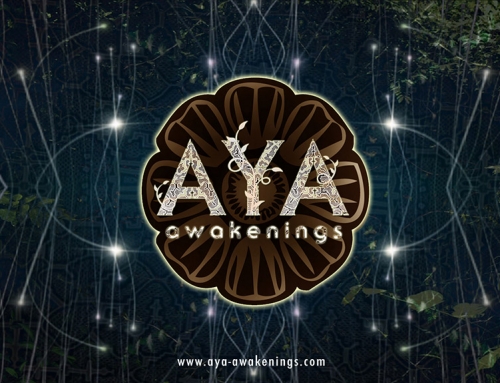
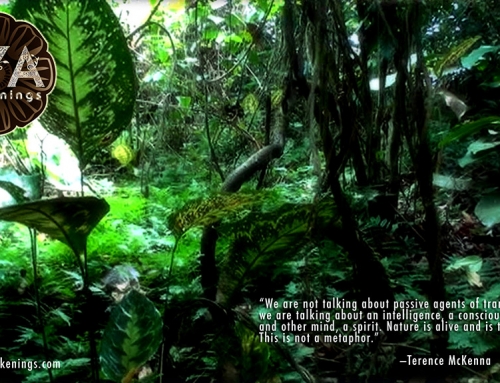
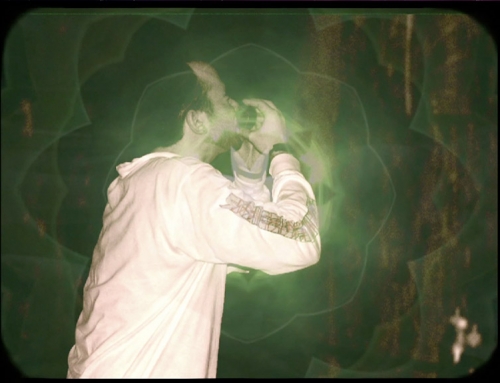
Recent Comments